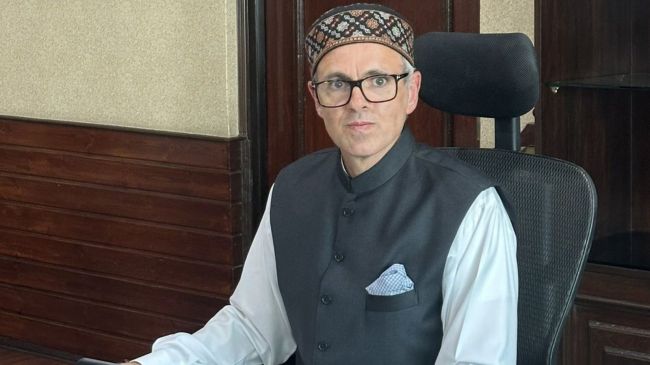Opinion One year of Omar Abdullah government: Failure to rationalise reservation reveals its lack of will
Abdullah must understand that the youth of Kashmir are watching. They understand the difference between political helplessness and political dishonesty
 The JKNC government must realise that young people are not passive observers; they are the pulse of political change. The same youth who trusted the party’s word during the elections now feel betrayed. Their patience is thinning, and frustration is turning into awareness.
The JKNC government must realise that young people are not passive observers; they are the pulse of political change. The same youth who trusted the party’s word during the elections now feel betrayed. Their patience is thinning, and frustration is turning into awareness. On October 16, 2025, Jammu and Kashmir Chief Minister Omar Abdullah completed his first year in office. While the larger promises of restoring statehood and reclaiming the pre-August 5 status remain distant goals, the government has fallen short even on matters that fall squarely within its own control — most notably, the rationalisation of reservation.
During the 2024 Assembly elections, the Jammu and Kashmir National Conference (JKNC) had made the “New Reservation Policy” — it amends Rule 4 of the Jammu and Kashmir Reservation Act of 2005 to increase reservation for the reserved category in the state to 67 per cent from 43 per cent, with 3 per cent horizontal reservation to ex-servicemen — a central political plank.
Introduced in April 2024 by the Centre, the policy was denounced by the party as unfair and discriminatory. The JKNC pledged to review and rationalise it if voted to power. This led to a strong belief among young voters that the party was genuinely committed to reversing the contentious changes in the reservation structure.
But, a year later, that belief stands eroded. The Omar Abdullah government has shown little intent to do anything on this matter. What once sounded like a moral commitment has now started to look like an election-time slogan, only aimed at winning the confidence of the youth.
It did not demand large financial resources or elaborate planning; it simply required the will to act. However, after coming to power, the government appeared dormant, seemingly oblivious to its promise of rationalising reservation for Kashmir’s youth, and was stirred into action only after widespread protests — one at Delhi’s Jantar Mantar and another outside the Chief Minister’s residence in Srinagar. Under mounting pressure, it formed a cabinet subcommittee, giving it six months to submit a report. Although the Chief Minister had assured that the report would be ready well before the deadline, it was submitted only on the final day, reflecting a lack of seriousness in the process from the outset.
Once the report was in, the government cited the need to place it before the Cabinet. People waited, expecting movement within weeks. However, instead of a Cabinet discussion, the report was sent to the Law Department for vetting, again without any timeline. Each time the public’s hopes rose, the government introduced a new layer of delay: First the subcommittee, then the Cabinet, and now the legal review. Transparency and urgency have been missing throughout.
Adding to the perception of inaction, on October 14, when pleas challenging the new reservation policy were listed for hearing, the government sought another four weeks to file its counter affidavit. This only deepened public frustration and strengthened the view that the government is deliberately buying time.
The JKNC government must realise that young people are not passive observers; they are the pulse of political change. The same youth who trusted the party’s word during the elections now feel betrayed. Their patience is thinning, and frustration is turning into awareness.
There is a broader principle at stake here. Democracy depends not merely on lofty promises but on the ability of those in power to deliver tangible results. If a party cannot keep its word on an issue fully within its administrative reach, how can people trust it to fight for constitutional and political restoration at the national level? The reservation issue, small as it may appear, is a test of governance, integrity, and moral authority.
One year is more than enough time to act. The government cannot keep hiding behind the excuse of legal vetting or procedural delay. Each passing day erodes public confidence and strengthens the belief that the promise of rationalisation was never meant to be kept.
The youth of Kashmir are watching. They understand the difference between political helplessness and political dishonesty. The JKNC government led by Omar Abdullah still has time to correct course — to show that its promises are not mere words but commitments grounded in conviction.
The writer is National President of the J&K Students Association






